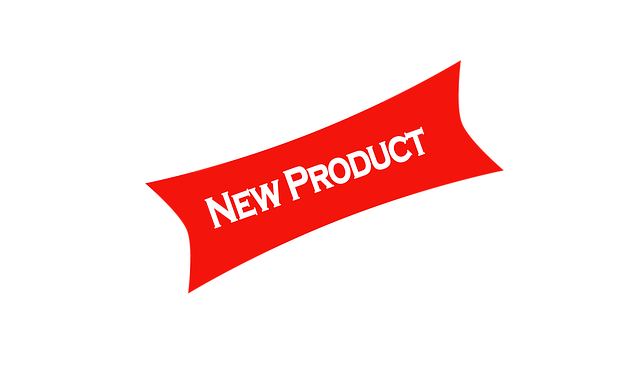Chatbot marketing for campaigns leverages AI to automate outreach, free up resources, and enhance customer interactions. These chatbots handle queries, offer personalized recommendations, process transactions, and collect data, improving efficiency and engagement. They scale initiatives, refine marketing efforts, and drive conversions, particularly in ecommerce. Measuring success through goals like lead generation and A/B testing optimizes performance over time. Ethical considerations include protecting user privacy, building trust, maintaining authenticity, and disclosing capabilities transparently.
In today’s digital landscape, brands are constantly seeking innovative ways to scale campaign outreach. AI chatbots emerge as a powerful tool, offering unprecedented potential to transform marketing strategies. This article delves into the art of leveraging chatbot marketing for campaigns, exploring key areas such as understanding chatbot capabilities, integrating bots seamlessly, personalizing user interactions, and measuring success. Additionally, it navigates ethical considerations, providing a comprehensive guide to harnessing chatbot marketing’s power responsibly.
- Understanding Chatbot Marketing Potential
- Integrating Chatbots for Campaign Outreach
- Personalizing User Interactions with AI
- Measuring Success and Iteration Strategies
- Ethical Considerations in Chatbot Deployment
Understanding Chatbot Marketing Potential

In the dynamic landscape of digital marketing, Chatbot Marketing for campaigns has emerged as a powerful tool to revolutionize outreach efforts. AI chatbots offer an unparalleled opportunity to scale and personalize interactions with customers on a massive scale. By automating routine tasks, these bots free up valuable time and resources, enabling marketers to focus on strategic initiatives. A sales chatbot, for instance, can handle initial customer queries, provide product recommendations, and even process basic transactions, enhancing efficiency and improving the overall customer experience.
The potential of chatbot marketing lies in its ability to create dynamic and personalized conversations that foster stronger connections. Using AI workflows, chatbots can adapt to individual user behaviors, offering tailored suggestions and responses. This level of customization not only increases engagement but also boosts conversion rates. As technology advances, the integration of advanced AI capabilities in chatbot marketing promises even more sophisticated interactions, turning mundane customer service into a seamless and enjoyable experience.
Integrating Chatbots for Campaign Outreach

Integrating AI chatbots into campaign outreach strategies has emerged as a powerful approach for businesses to enhance their marketing efforts and gain a competitive edge. These intelligent agents can play a pivotal role in scaling up outreach initiatives, especially in the realm of customer engagement. By leveraging natural language processing, chatbots can handle a large volume of conversations simultaneously, allowing marketers to connect with a broader audience effectively. This is particularly beneficial for ecommerce businesses seeking to automate their marketing strategies and personalize interactions at scale.
Chatbots offer a dynamic way to deliver targeted messages, gather customer insights, and even provide quick support. For instance, in an ecommerce setting, an AI chatbot can engage customers during their browsing journey, offering product recommendations or addressing inquiries instantly. This not only improves the overall shopping experience but also increases the chances of conversions. Moreover, chatbots can collect valuable data, enabling businesses to refine their marketing campaigns and tailor content for specific customer segments, ensuring that every interaction contributes to a more successful outreach strategy.
Personalizing User Interactions with AI

In today’s digital era, businesses are continually seeking innovative ways to enhance their campaign outreach and engage target audiences. Chatbot marketing for campaigns has emerged as a powerful tool, offering a personalized user experience that was once unimaginable. AI automation allows chatbots to interact with customers in real-time, providing tailored responses based on individual needs and preferences. This level of customization not only improves customer satisfaction but also increases the chances of conversion.
By leveraging chatbot marketing, businesses can efficiently manage large volumes of inquiries while maintaining a human-like touch. The ability to deliver targeted messages and offers through AI automation ensures that each interaction is meaningful and relevant. This personalized approach helps build stronger customer relationships, fostering brand loyalty and ultimately driving campaign success.
Measuring Success and Iteration Strategies

Measuring success is a critical aspect of any campaign, and when leveraging AI chatbots for marketing efforts, it becomes even more essential to track key performance indicators (KPIs). By setting clear goals, such as lead generation, customer engagement, or sales conversions, marketers can assess the effectiveness of their chatbot strategy. Analyzing user interactions, response rates, and conversion rates provides valuable insights into what’s working and areas for improvement. For instance, tracking how many users complete a desired action after interacting with the chatbot—whether it’s making a purchase, filling out a form, or signing up for a newsletter—helps in refining the conversation flow and content to optimize results.
Iteration is key in AI chatbot marketing. As chatbots learn from user interactions, regular updates and adjustments are necessary to stay relevant and effective. Marketers can employ A/B testing to compare different chatbot versions, conversation paths, or messaging styles to identify what resonates best with their target audience. By continuously refining the chatbot’s performance based on data-driven insights, businesses can enhance user experiences and drive better outcomes in their campaign outreach efforts. These iterative strategies ensure that the AI sales chatbot remains a powerful tool for scaling and improving marketing campaigns over time.
Ethical Considerations in Chatbot Deployment

As AI chatbots gain popularity in marketing campaigns for their ability to automate tasks and improve customer engagement, it’s crucial to address ethical considerations surrounding their deployment. One primary concern is user privacy and data security. Chatbots collect and process vast amounts of user information, including personal details and conversation history. Ensuring transparency about data usage, obtaining consent, and implementing robust security measures are vital steps in building trust with users.
Additionally, maintaining authenticity and avoiding deceptive practices is essential. AI agents should be designed to provide accurate and relevant responses, without misleading or manipulating users. For instance, a sales chatbot must offer genuine recommendations based on user inputs rather than pushing pre-set sales scripts. Proper disclosure of the chatbot’s capabilities and limitations helps set realistic expectations and fosters honest interactions.
AI chatbots are transforming campaign outreach by offering personalized, scalable, and efficient interactions with users. As seen across various industries, integrating these conversational AI tools can significantly enhance engagement and conversion rates. By understanding their potential, personalizing user experiences, and continuously measuring success, businesses can leverage chatbot marketing for campaigns that drive meaningful results. Ethical considerations must be addressed to ensure transparency and respect for user privacy, paving the way for responsible and effective chatbot deployment.
